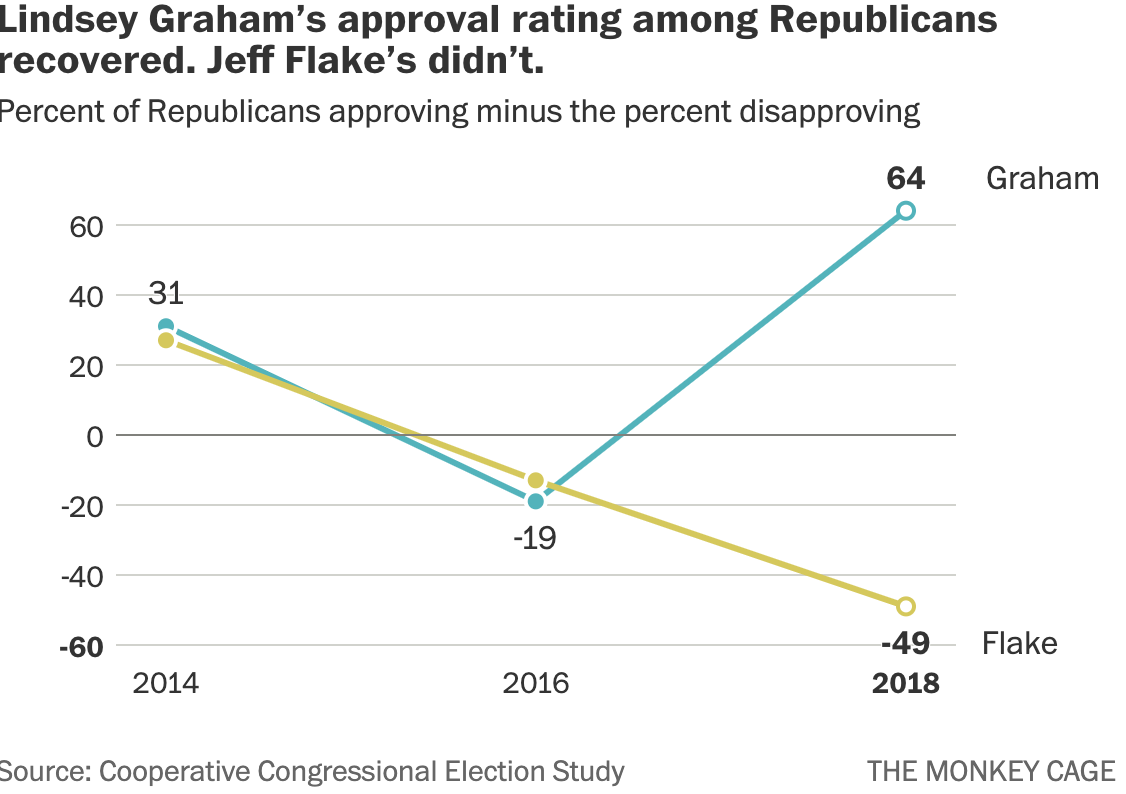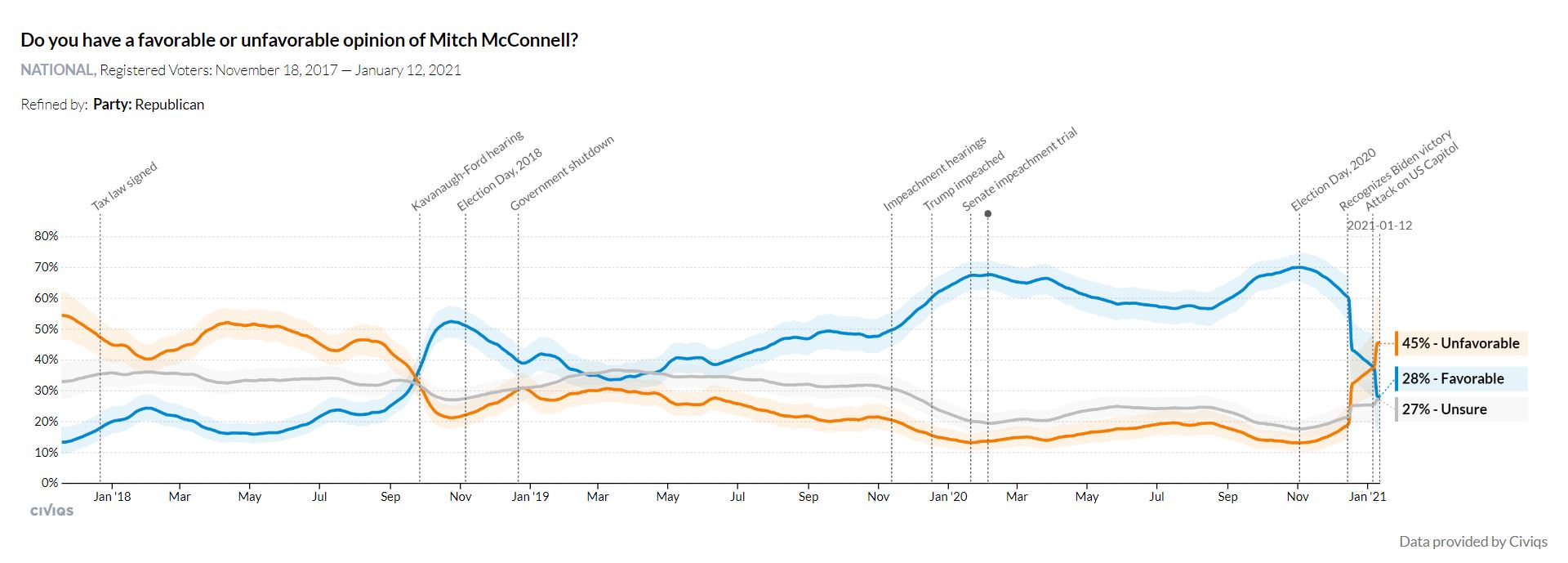On Wednesday afternoon, the House of Representatives voted 232 to 197 to impeach President Trump, this time on the charge of “incitement of insurrection.”
In September 2019, in the lead-up to the first impeachment vote against Trump, congressional Republicans were silent in response to news of a whistleblower report alleging that Trump purposefully withheld military aid from a vulnerable ally to coerce Ukraine’s president into digging up dirt on Joe Biden, the president’s eventual opponent in the 2020 election.
Back when that news broke, I explained congressional Republicans’ silence toward the whistleblower allegations that subsequently led to the president’s first impeachment with one chart — the figure below, contrasting the popularity of Sens. Jeff Flake (R-Ariz.) and Lindsey O. Graham (R-S.C.).

The display shows Republicans’ net approval (percent approve minus percent disapprove) of Flake in Arizona and Graham in South Carolina from 2014 to 2018 in the Cooperative Congressional Election Survey. Both senators were relatively popular among fellow partisans in their home states. Both GOP senators strongly criticized Trump during the 2016 presidential campaign and both saw their support among Republicans plummet as a result.
Flake’s popularity within his party continued to crater as he remained a vocal critic of Trump’s presidency. He announced his retirement in 2017, acknowledging that he couldn’t win a Republican primary without cozying up to the president. Meanwhile, the figure shows how Graham’s popularity soared to new heights among South Carolina Republicans after he flip-flopped to become one of the president’s most vocal supporters. He went on to win his 2020 Senate primary by 50 percentage points and was reelected to the Senate by a 10-point margin in November.
The Graham-Flake comparison is a major reason Republicans didn’t stay silent for long about the president’s pressure campaign against Ukraine. Instead, almost every Republicans in the House confronted the impeachment hearings’ evidence of malfeasance with defiance — insisting the president did nothing wrong in his dealings with the Ukraine. Every Republican in the House of Representatives voted against impeaching the president.
Impeachment 2.0 — Did anything change in 2021?
But the impeachment articles the House passed on Wednesday afternoon are much more serious than the two they passed in 2019.
Rep. Liz Cheney (R-Wyo.), the third-ranking member of the House Republican leadership and one of 10 Republicans who voted for impeachment on Wednesday, described Trump’s incitement of insurrection as the greatest “betrayal by a President of the United States of his office and his oath to the Constitution.” Adam Kinzinger (R-Ill.) explained his vote in favor of impeachment by stating, “if these actions — the Article II branch inciting a deadly insurrection against the Article I branch — are not worthy of impeachment, then what is an impeachable offense?”
So, why did only 10 Republicans vote for impeachment?
As informative as the Flake-Graham contrast is in explaining congressional Republicans’ refusal to hold the president accountable for inciting insurrection, the precipitous decline over the past few weeks in GOP support for both Vice President Pence and Senate Majority Leader Mitch McConnell (R-Ky.) may be even more telling.
Pence and McConnell’s popularity has nosedived
The president railed against both Republican leaders for executing their constitutional duties in certifying Joe Biden’s presidential victory. Pence and McConnell’s favorability ratings have each declined by more than 20 percentage points among Republicans in Civiqs’s daily tracking polls as a result.


Republicans face a tough choice
The immediate erosion of GOP support for Pence and McConnell vividly illustrates the dilemma for congressional Republicans who have been loyal to Trump over the past four years: Stand by the president as he spreads dangerous misinformation that foments violence — or risk losing support from the large share of Republicans who were misled into believing the 2020 election was rigged.
There wasn’t much suspense about how House Republicans would respond to this predicament. At every turn of Trump’s presidency, congressional Republicans have privileged partisan popularity and influence over facts and democracy.
It’s hardly a surprise, then, that almost all House Republicans remained on the same course until the bitter end — refusing to impeach the president for the lies he spread about the 2020 election that ultimately incited insurrection at the U.S. Capitol on Jan. 6.
Editor’s note: The third graph has been updated to show the latest version.



